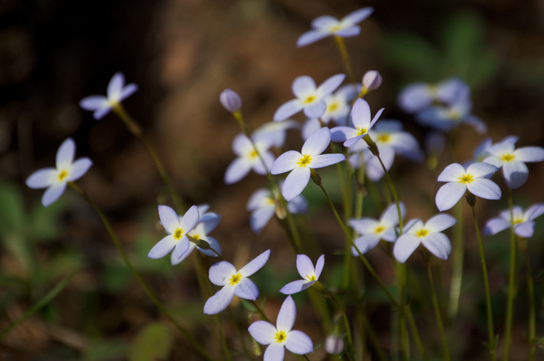
I mentioned in the last post that the Blue class was inspired by three things: a film, a novel, and Maggie Nelson’s book Bluets. As much as I love Bluets, it’s kind of hard to talk about. One source of the difficulty is because it defies categories. It is prose, but it is not fiction. It has paragraphs, but often these stand alone. They are numbered. Sometimes there are clear connections from one to the next. Sometimes the transition is more associative, or what I guess must be associative, and sometimes there’s a clear change of topic. Sometime they read as epiphany. Sometimes they read as meditation. Sometimes they read as observation. And these are mutable, shifting.
I asked my students what they made of the form that the book takes, and they described it as a list. But a list of what, exactly?
Another source of difficulty, at least with teaching the book or even just talking about it with others is the deep resonance, even recognition, that some of the the moments inspire.
A Bluet is a plant with small four-petaled blue flowers. And when I googled it just now to find an image for this post, I was startled to learn that I have Bluets growing wild in my yard. They are dormant at present, it being the middle of winter and all, but while I have been secretly pleased by these lovely little invaders (they aren’t grass, after all), I never knew what they were. Now it feels a bit like kismet. Which is probably silly. And yet.
I began that paragraph to think about the book as a collection of flowers. Wildflowers to be more specific. Small, slight, delicate. Typically found in wooded places, fields, rock gardens. Solitary. Often encountered in clusters. But not always.
Some of Nelson’s critics refer to them as prose-poems but I confess, I’m a literary critic by trade, and I don’t know what to do with the “prose-poem” as a genre. So instead, I like the thought of each of these reflections as a wildflower. Somehow it makes more sense to me. They’re unpredictable and often startling and always lovely though sometimes in ways we don’t expect or can’t appreciate.
